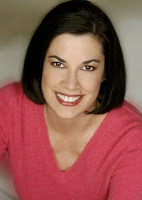Research and the Muse
A reader at one of my author talks recently said she was surprised by how much research I did for my books. She believed fiction writers made up their stories. I was appalled. No wonder some people (not YOU, of course) look down their noses at popular fiction writers. Any author would be dismayed by this observation because we put a lot of work into researching our tales.
As any reader of historical fiction knows, the writer must thoroughly research all details of the era in order to be accurate. Ditto for mysteries. I get people asking me all the time if I had been a hairdresser because my sleuth’s job details are so accurate. When I mention that my background is in nursing, they are astounded. How did you learn enough to write about a hairstylist who solves crimes for your Bad Hair Day series? Well, I interviewed my hairdresser and followed her around the salon. I visited a beauty school and checked out their curriculum. I attended a beauty trade show in Orlando. I subscribed to Modern Salon Magazine. And if I needed to know anything else about hair, I asked my hairstylist or had her read relevant passages in my manuscript for accuracy.
That’s just the beginning. Consider that I also consult a homicide detective for crime details and police procedure, even if forensics doesn’t play a heavy role in my books. Plus each story has its own topics to research. I’ve investigated such diverse subjects as medical waste disposal, tilapia farming, migrant labor smuggling, the dog and cat fur trade, vanilla bean cultivation, and more. Then there is on-site research, i.e. pounding the pavement in Mount Dora to get street details, skulking through a Turkish Bath in my swimsuit, getting a reading from a medium in Cassadaga. I take very detailed notes and photos to use in crafting my story.
Authors who use contemporary settings cannot make things up out of thin air. Besides the location, we may need to research pertinent issues to include in our stories. I always try to include a Florida based issue or something of universal interest (like Alzheimer’s Disease) to give my stories added depth. Newspapers, magazines, the Internet, personal interviews, and on-site visits are just some of the techniques we use. Probably the most fun I’ve had for research was going on a couple of cruises for Killer Knots. I challenge you to fault any of my minute details in that adventure.
But what about the vampire and werewolf fiction out there now, and other paranormal stories? Don’t those authors just make up their imaginary worlds? No, because these worlds must be consistent, and they’re often based on mythology or early Earth cultures.
For example, my proposed paranormal series is based on Norse myths. I have several texts on the subject and took extensive notes so I can understand their creation theory. I wrote down the different gods and goddesses, because they play a part in my story as well. For this tale as well as Silver Serenade, my upcoming futuristic romance, I needed to name spaceships, weapons, and/or military personnel. Using the Internet to look up ranks in our own military gave me a model. I also have a collection of Star Trek and Star Wars Sourcebooks which are great inspiration for weaponry, ships, propulsion and such. So even for fantasy, research is necessary. Science fiction is even more exacting because you’re extrapolating what might be plausible in the future or exaggerating a current issue from the news.
So please have more respect for fiction writers. We do extensive research, and a truly gifted writer will not let it show because you’ll be swept into the story. A good work of fiction is like a stage show, with all the blood and sweat and tears going on behind the scenes. All the audience sees is the fabulous performance.
Nancy J. Cohen
Killer Knots: A Bad Hair Day Mystery
Silver Serenade: Coming soon from The Wild Rose Press
Website: http://nancyjcohen.com/
Blog: http://mysterygal.bravejournal.com/

